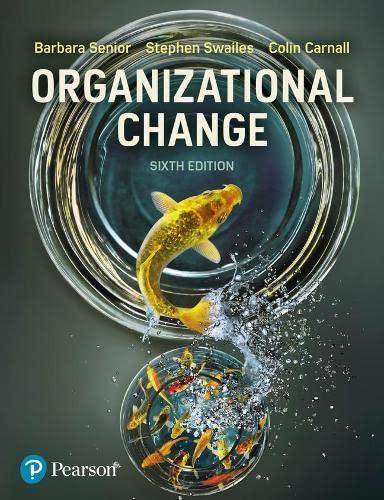The governing body for world football, FIFA, reached a contentious decision in 2010 to hold the World
Question:
The governing body for world football, FIFA, reached a contentious decision in 2010 to hold the World Cup in Qatar in 2022. In the final round of voting, 14 votes went to Qatar and 8 to the USA. Qatar has no tradition of football, little football infrastructure and summer temperatures too severe for competitive high-quality football. Furthermore, before reaching its decision, FIFA’s executive committee (exco) was briefed that Qatar was at a high risk of terrorist attack.
Investigative journalism in 2014 raised some serious concerns about the processes leading up to the Qatar decision. At the centre of the concerns and allegations were claims of bribery and corruption.
Allegations were made that substantial sums of money, valuable gifts and junkets made their way from Qatari bank accounts (slush funds) into the accounts of decision makers on FIFA’s exco committee, which decides where future World Cup events will be staged.
A key player in the successful campaign for Qatar was BH. After the campaign, BH set out to topple the long-standing head of FIFA (JB) and take the presidency for himself. It was alleged that, at a meeting of influential Caribbean football heads, BH paid over $360,000 to cover travel and accommodation expenses and also gave each delegate $40,000 cash as a way of raising support for his presidential campaign.
Very soon after, however, evidence of the cash payments was obtained and sent to FIFA’s headquarters in Switzerland. A few days before the presidential ballot was due, BH was summoned to appear before FIFA’s ethics committee – an event that killed any hope BH had of getting the top job. FIFA announced that both BH and a senior exco member were suspended from all activities in football pending a full investigation.
FIFA’s ethics committee found evidence of wrongdoing and banned BH for life. On appeal, this ban was overturned, at which point BH announced his retirement from involvement in football.
Some time afterwards, following further investigations, the ethics committee banned BH again from life involvement in the game. AW, who had been president of the North, Central American and Caribbean football confederation and vice-president of FIFA, resigned in 2011 following corruption and bribery charges. Several senior figures attacked FIFA for not representing world football, having long-standing traditions of bribery and corruption and sham investigations in which people were not properly investigated. Concerned at allegations against it, FIFA appointed a former police officer as a new security adviser. After two years, he and his team left FIFA for a new sports security post in Qatar. Their investigation of FIFA’s senior officials and regional governing bodies reportedly concluded by saying:
● of the president, JB, he is ruthless, greedy, manipulative and prepared to compromise everything for personal ambition;
● of the secretary-general, he is ruthless and charmingly arrogant;
● of the head of legal services, he is consummately loyal and protective of men at the top even when he disagrees with them;
● of the European Confederation, it is historically influential but serious corruption issues exist;
● of the African Confederation, manipulated throughout for decades;
● of the Asian Confederation, marred by involvement in the Qatar bid (BH was its president for nine years);
● of the Oceania Confederation, little impact on any decisions;
● of the North and Central American Confederation, poor reputation and the Caribbean has been manipulated for decades;
● of the South American Confederation, it is led by long-serving octogenarians, will never show leadership and will be the last to change.
Further reporting claimed that after the 2010 World Cup in South Africa, the 22 exco members were each given a $200,000 bonus. This was on top of their $100,000 salary for their part-time position and $750 per day allowances when working for FIFA.
The money was paid into either executives’ personal accounts or Swiss bank accounts. The $200,000 windfall was announced to exco the day before the Qatar decision was made. FIFA later announced that bonus payments would be stopped, but at about the same time, and without saying, doubled the pay given to committee members. Later there were calls for Qatar to lose the right to hold the World Cup and for the event to switch to another country. Qatar insisted that BH, who is a Qatari, never had any official role in supporting the Qatari bid and that he always acted independently.
FIFA responded to corruption allegations from Britain by saying that they were grounded in racism and discrimination.
As we write this case (2015), at dawn on the eve of FIFA’s 65th Congress in Switzerland, USA law officials have arrested seven senior FIFA officials on charges of corruption. Intimations that this was just the start were made. Speculation was that the FIFA president might lose the election the next day. However, this was not the case and he won.
Questions
1. What internal organizational conditions could have created a climate in which the alleged largescale
corruption and bribery took place over such a long time?
2. How were power and influence used to produce, or attempt to produce, particular outcomes for
individuals?
3. What actions by FIFA could restore confidence in its integrity?
4. Assuming that external events have triggered change processes at FIFA, how would you classify
these events in a PEST framework?
Step by Step Answer:

Organizational Change
ISBN: 9781292243436
6th Edition
Authors: Barbara Senior, Stephen Swailes, Colin Carnall





